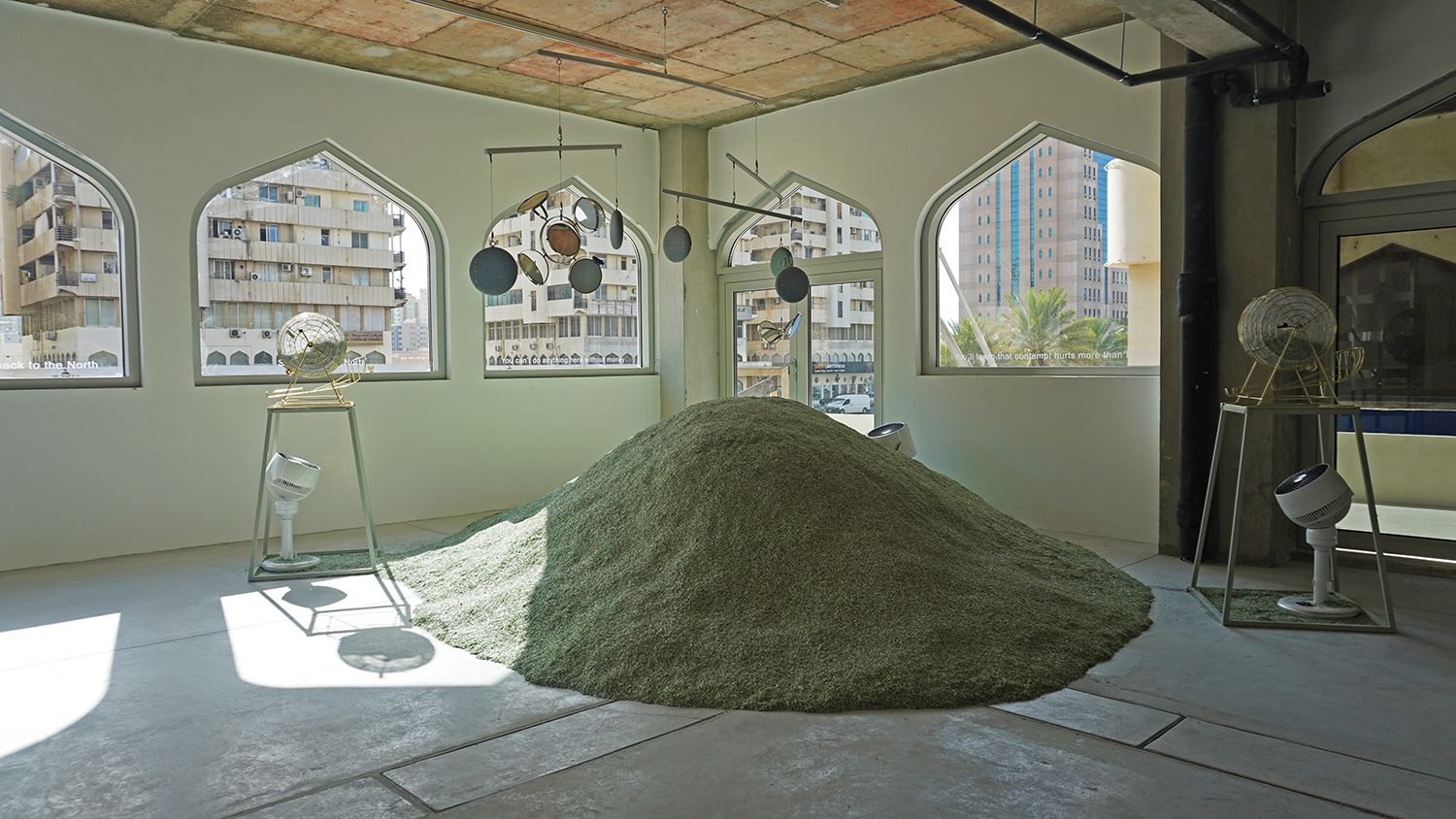
나라 없는 사람, 2023, 분쇄회폐(한국은행 제족), 블루투스 스피커, 모빌, Fan, 수동 로토 기계, 가변크기, 샤르쟈 은행 거리(건물), 아랍에미레이트
A Man without a Country, 2023, Shredded Korean banknotes, sound, speakers, electric fans, mirrors, manual lottery machines, survey paper, neon sign and hanging steel mobile, variable size, Sharjah Biennale15
Sound Mixing: Wi Ji-young
Voice: Chang Suk-hoon, Windy Kim, James Gu(actor), Park Seon-hee, Han Song-mi (North Korea defectors)
Coordinator: Lim Mi-ju
Shredded Banknotes support: Bank of Korea
Production sponsored: Korea Artist Prize Promotion Fund, from SBS Foundation and National Museum of Modern and Contemporary Art, Korea
Voice installation work A Man without County is a developed version of The Border 155, a work exhibited at Seoul Museum of Art in 2017. Back then, I conducted a survey of 50 North Korean defectors titled “South of vanishing hope vs. a North of scant freedom: Who is unhappier? In it, I asked the defectors about their hopes for South Korea when they left the North, and about their actual experiences of settling in the South.
The survey answers told of their defection processes and the unjust discrimination they had experienced in South Korea. Contrary to my expectations that they would have had a longing for freedom, the defectors had chosen the South in order to earn money and live safely. To them, money provided sufficient motivation to risk their lives escaping the North. South Korean groups working to help North Koreans were well aware of this, and regularly tied dollar notes to the message balloons they sent to the North, using capitalism to lure potential defectors to the South.
Most North Korean defectors cross the Yalu River in to China, then drift through several Asian countries as stateless persons before arriving in South Korea. Because of this, the thing they wanted above all was a passport indicating that “the state was protecting [them].” For many, the moment they had received a South Korean passport was their happiest memory after escaping the North. But it didn’t take them long to realize that life in the South Korea effectively meant exchanging hunger for scorn.” The 30,000 North Korean defectors living in the South were objects of hatred and discrimination; many of them refrained from talking lest their distinctive Northern accents betray their identities.
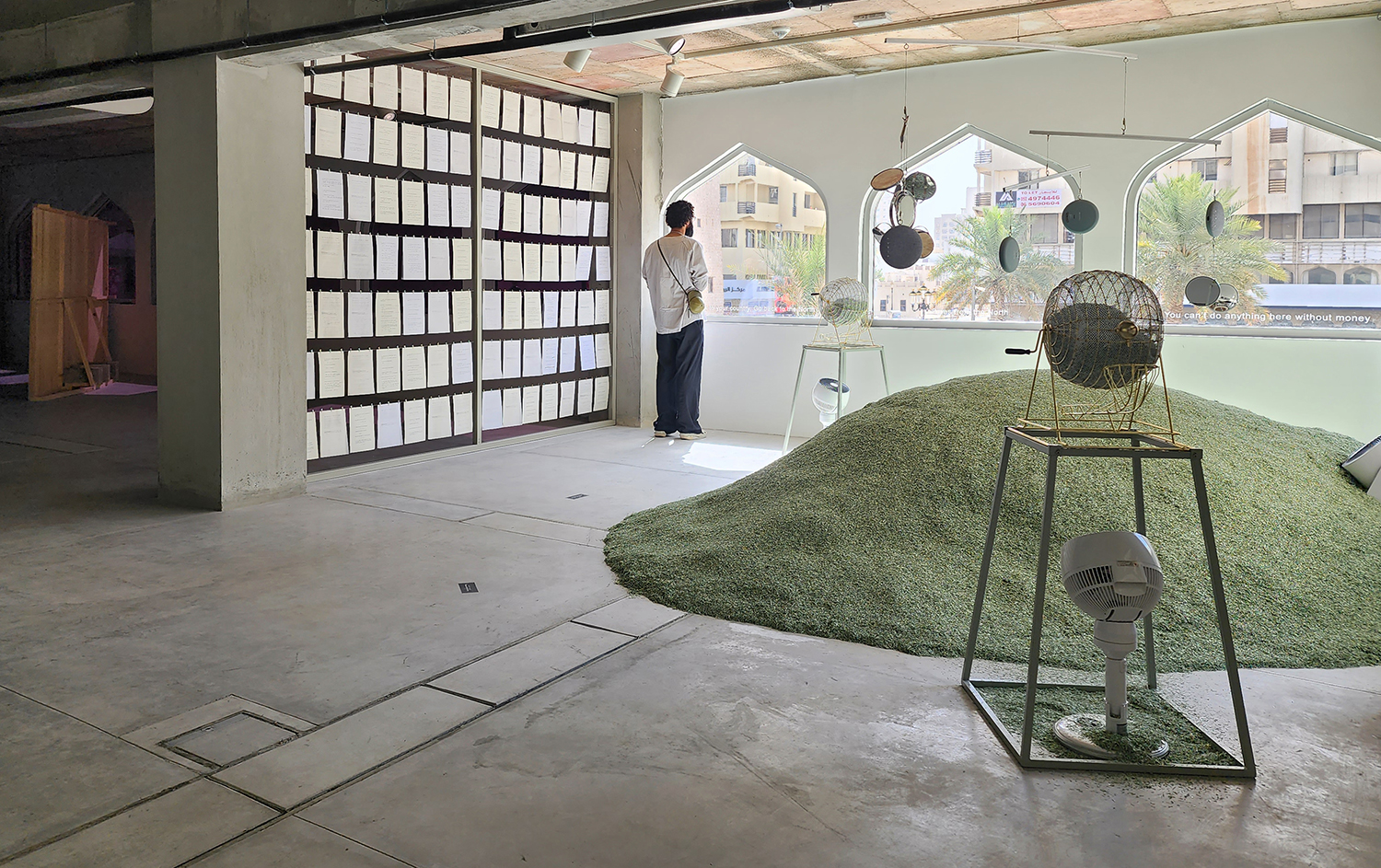
A Man without County is a hanging mobile featuring voices in Korean and English relating statements about violence and discrimination experienced by North Korean defectors in the South. It represents hatred, invisible yet hanging in the air around us. On the floor are shredded banknotes, piled high like a sand dune, representing the hidden desire of capital: beautiful to look at, but never enough to sate desire. Viewers can use a device installed by the work to send the shredded notes flying into the air, satirizing the sending of flyers from the South to the North, which continues to this day.
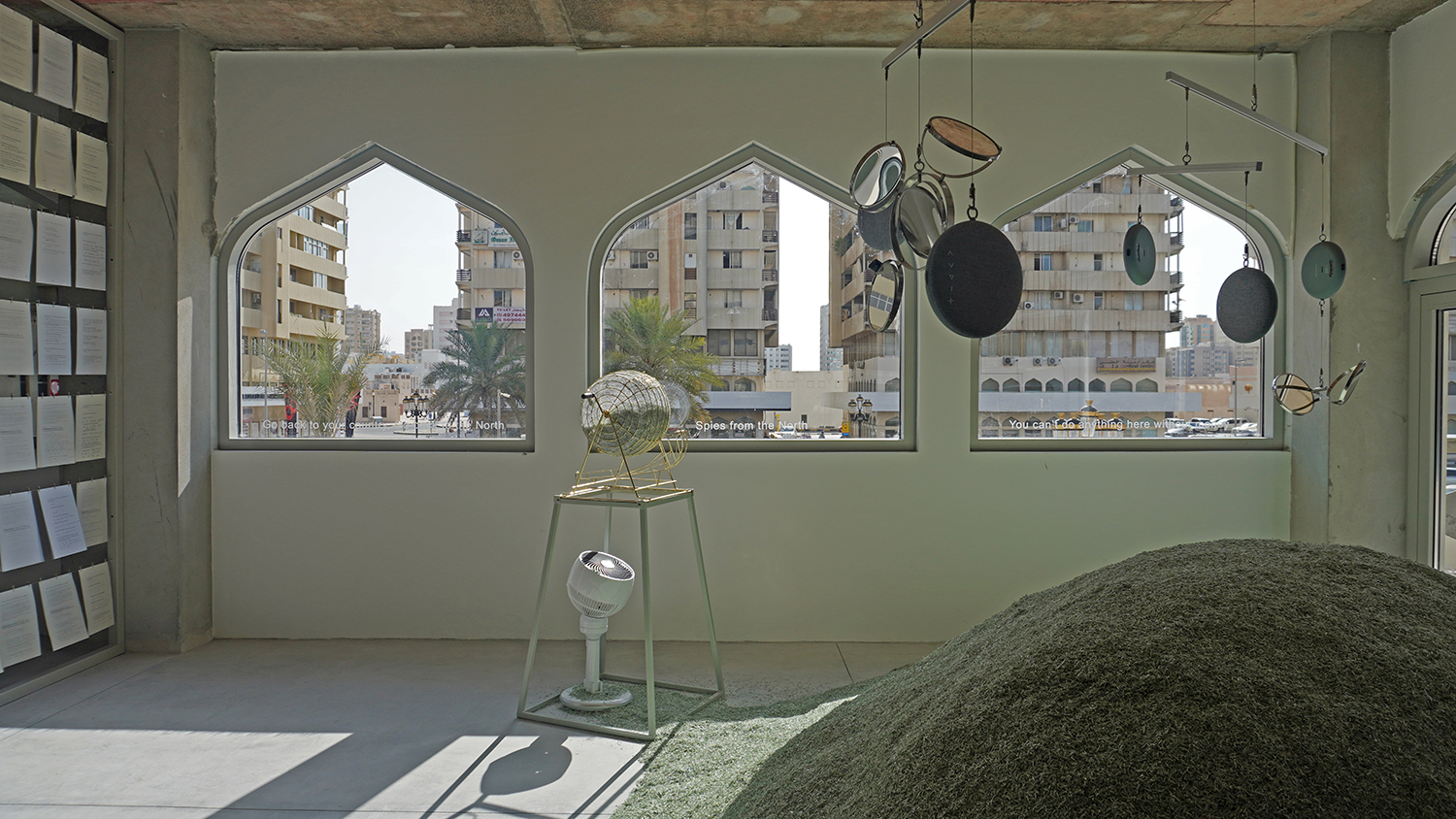
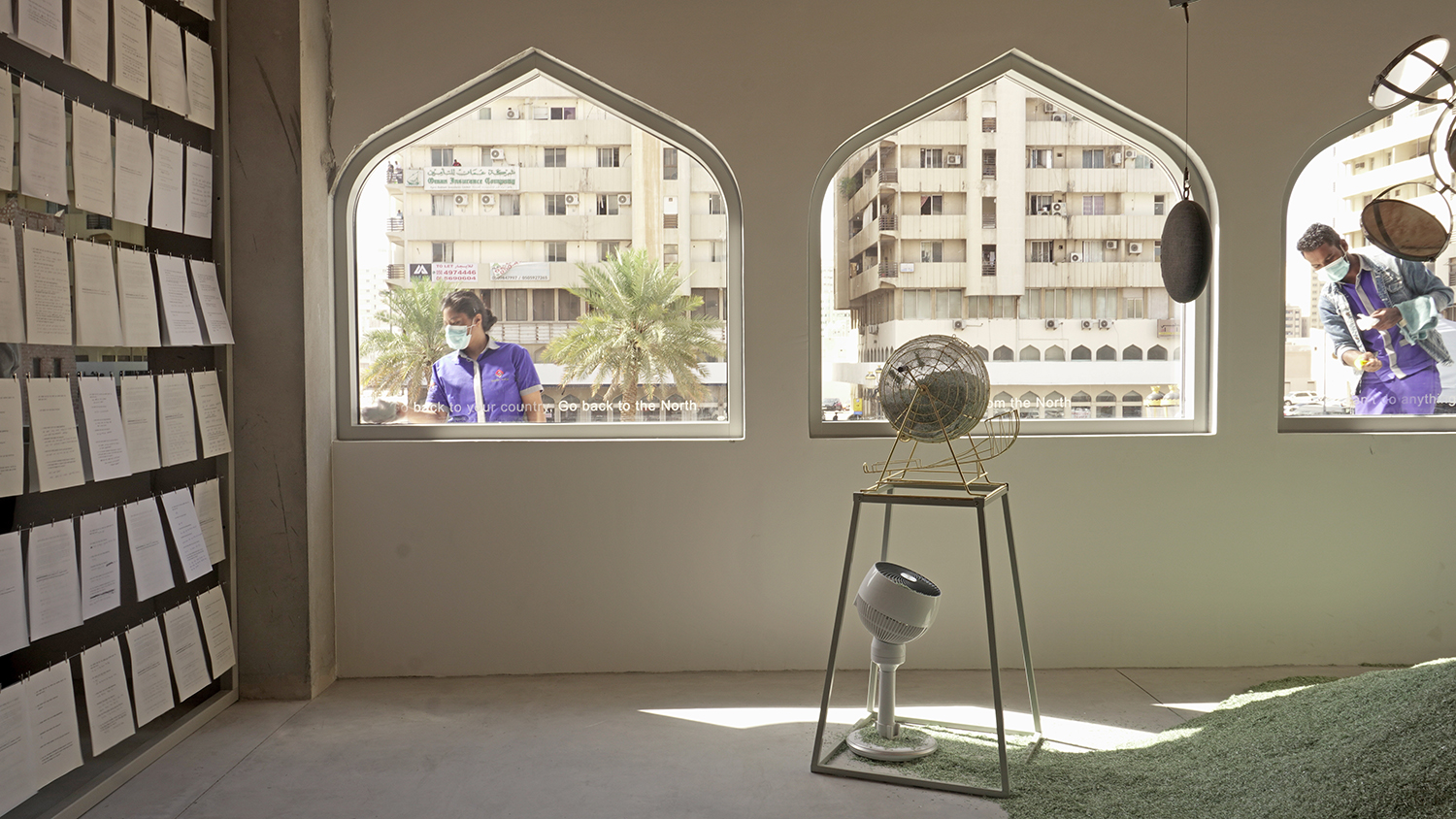
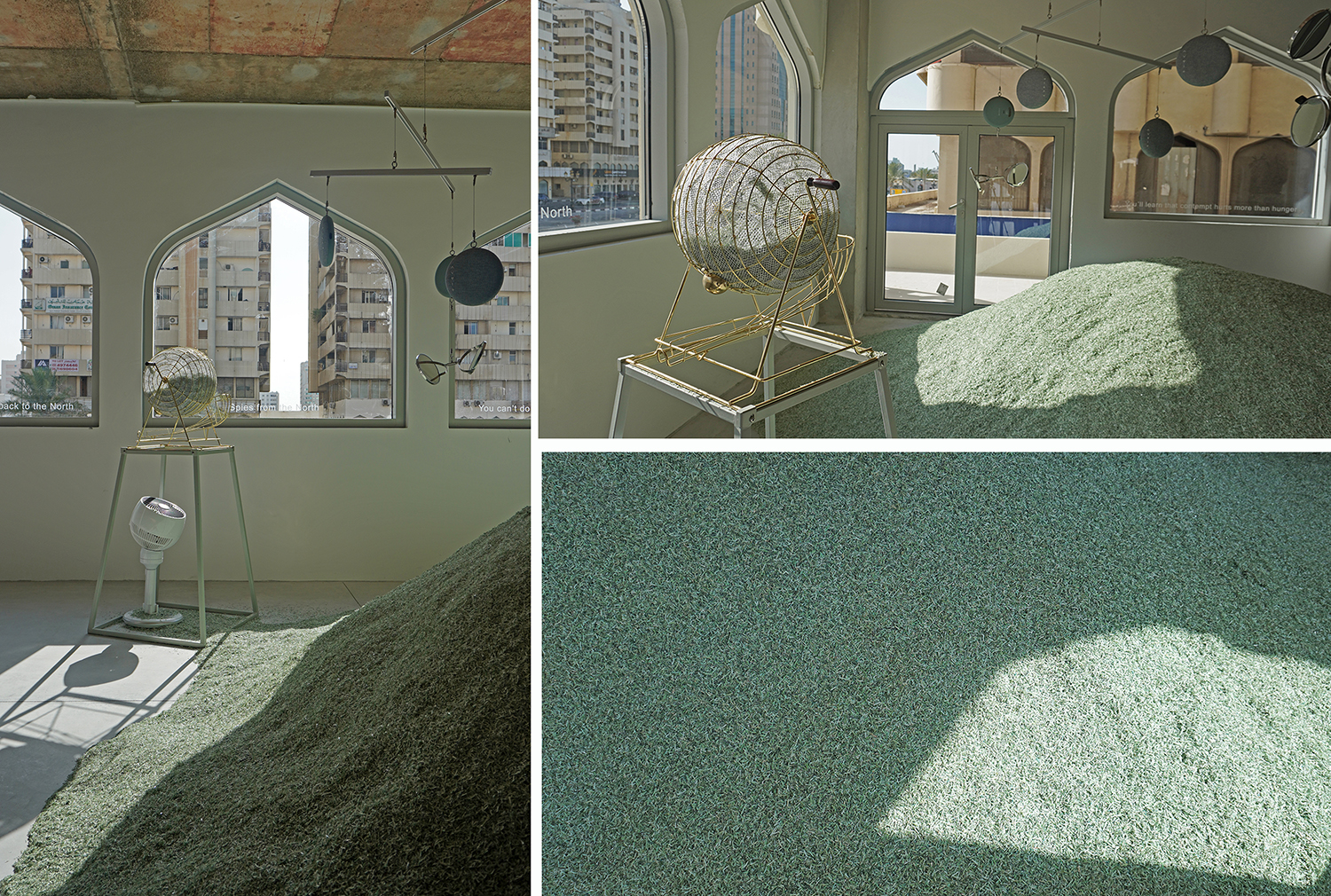
Survey 'A South of vanishing hope vs. a North of scant freedom: Who is unhappier? ' (2017)
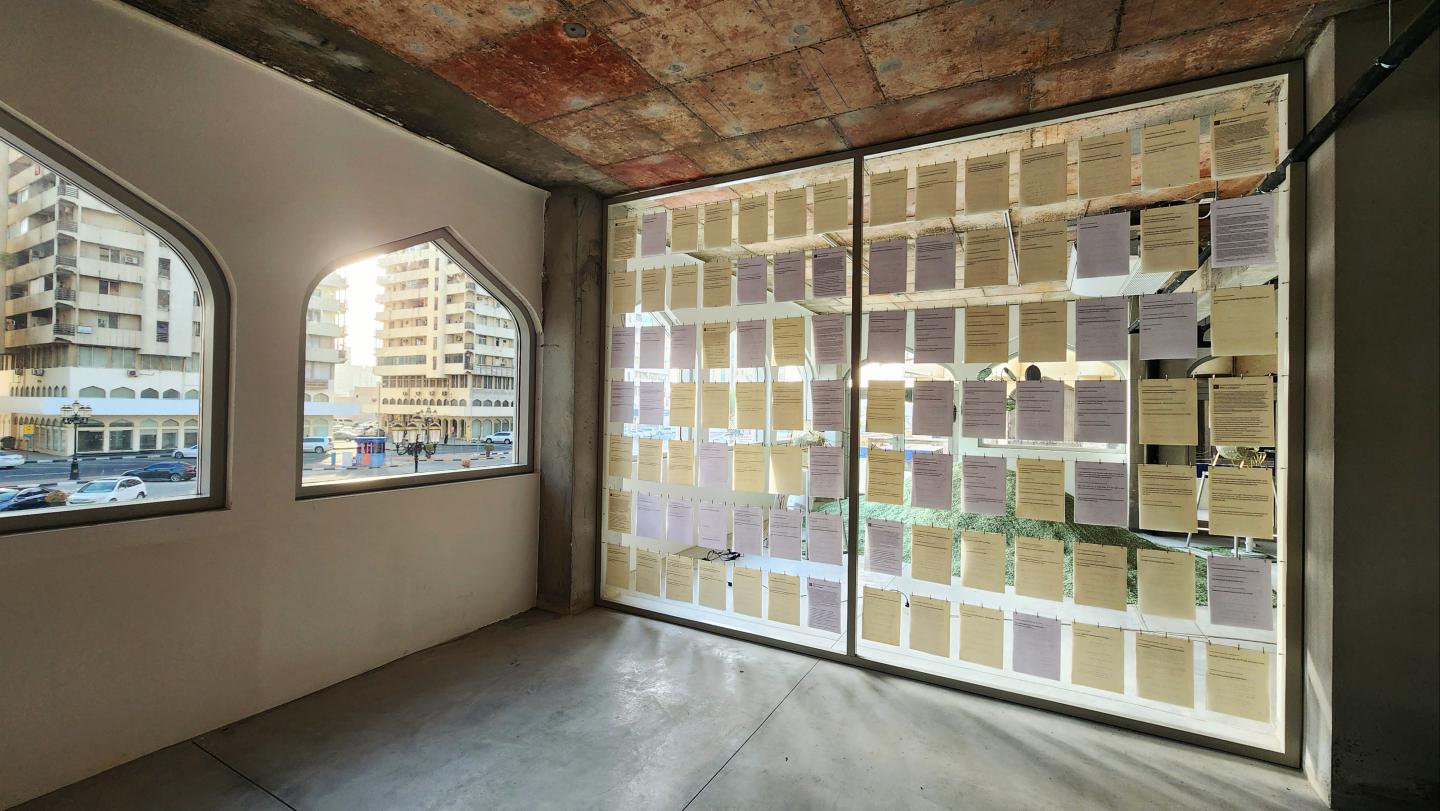
This survey was conducted on 100 North Korean defectors at 6 Hana Centers, the settlement support centers, in 2017.
When the defectors enter South Korea, they should first take the adjustment training program for three months at the Settle Support Center for North Korean Refugees, a government institution also called Hanawon. For the three months they stay at Hanawon, they have their health condition checked, learn about the law, system, and culture of South Korea, and have an identification card issued. After they complete the training program, the Hana Centers help them through settlement in South Korea.
The Hana Center is a regional adaptation center operated by a quasi-government agency, and 32 centers are located throughout the country. When the defectors leave Hanawon and move to different regions, each regional center provides them the support needed for settlement for 1 to 5 years.
Since access to both Hanawon and Hana Centers is restricted to regular citizens, this survey was conducted with the cooperation of the Ministry of Unification.
Run under separate systems since the division of the nation in 1950, South and North Korea have formed distinct cultures, and difference has occurred even in using the same language. As South Korea has openly accepted foreign cultures, people gradually used terms integrated with foreign languages, such as English, in daily life, while North Korea still sticks to the original Korean language. Attributed to such circumstances, a lot of North Korean defectors choose the language barrier as one of the biggest obstacles to settling in South Korea.
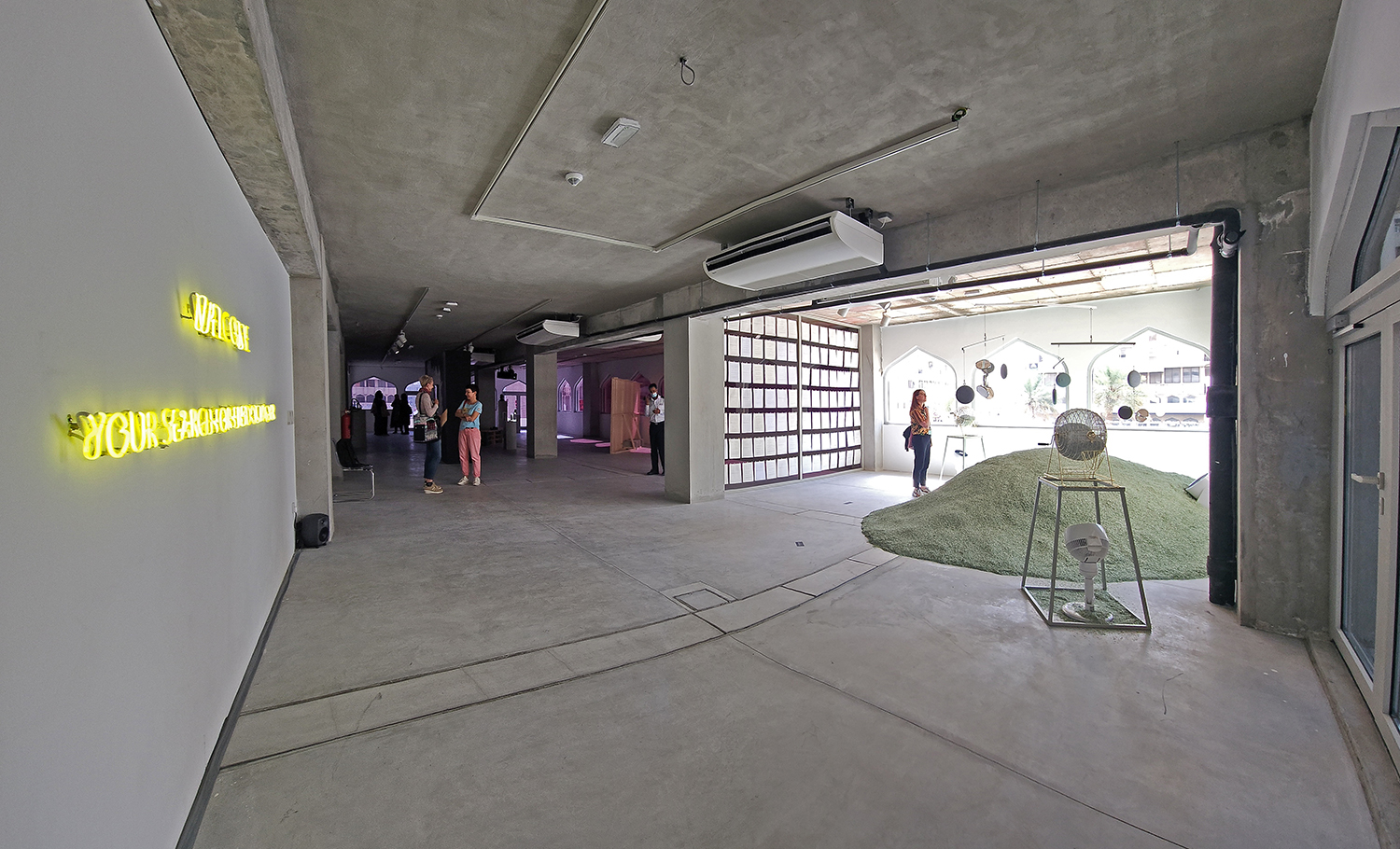
This survey targeted the defectors who arrived in South Korea in less than a year, which means those who may still struggle with the language. Therefore, some of the respondents could not write down the answers at all or misunderstood the questions. So, please note that the artist Hyesoo Park had to edit some responses for English translation.
Moreover, the defectors are not accustomed to a form of ‘survey’ that asks about individuals’ thoughts, so some of them merely wrote what they expected would please the government and institution. The instructors at Hana Centers who were in charge of collecting answers had to print out extra copies themselves as they used up all the copies the artist provided because the respondents wanted to rewrite their answers after the instructors informed them of the intention of this survey. It explains why some of the copies of the questionnaire have a different color.
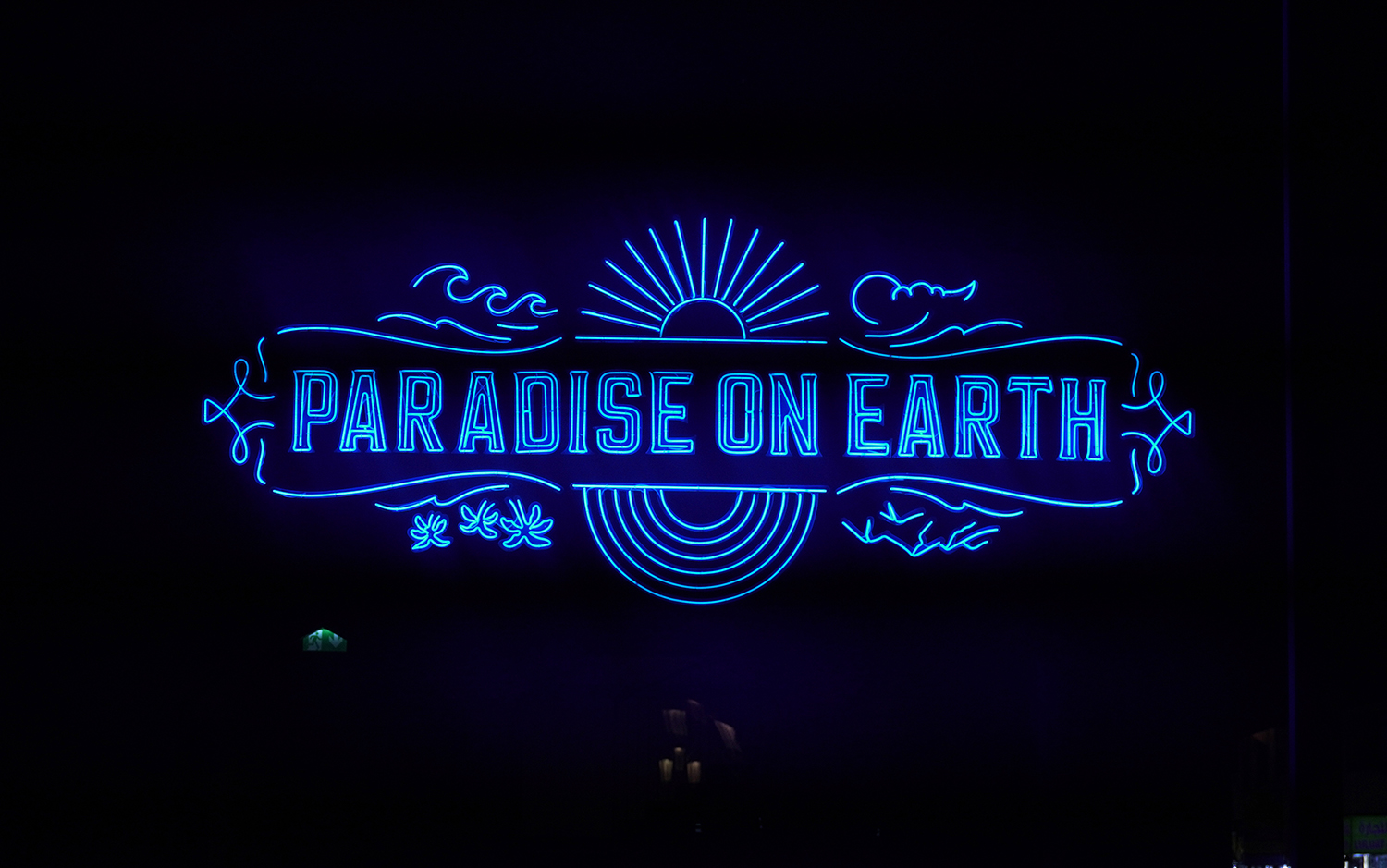
Paradise on Earth, 2023, Media: neon sign, aluminum plate, 200(h)x500cm, Sharjah(UAE)
Neon sign design: Kim Min-jae
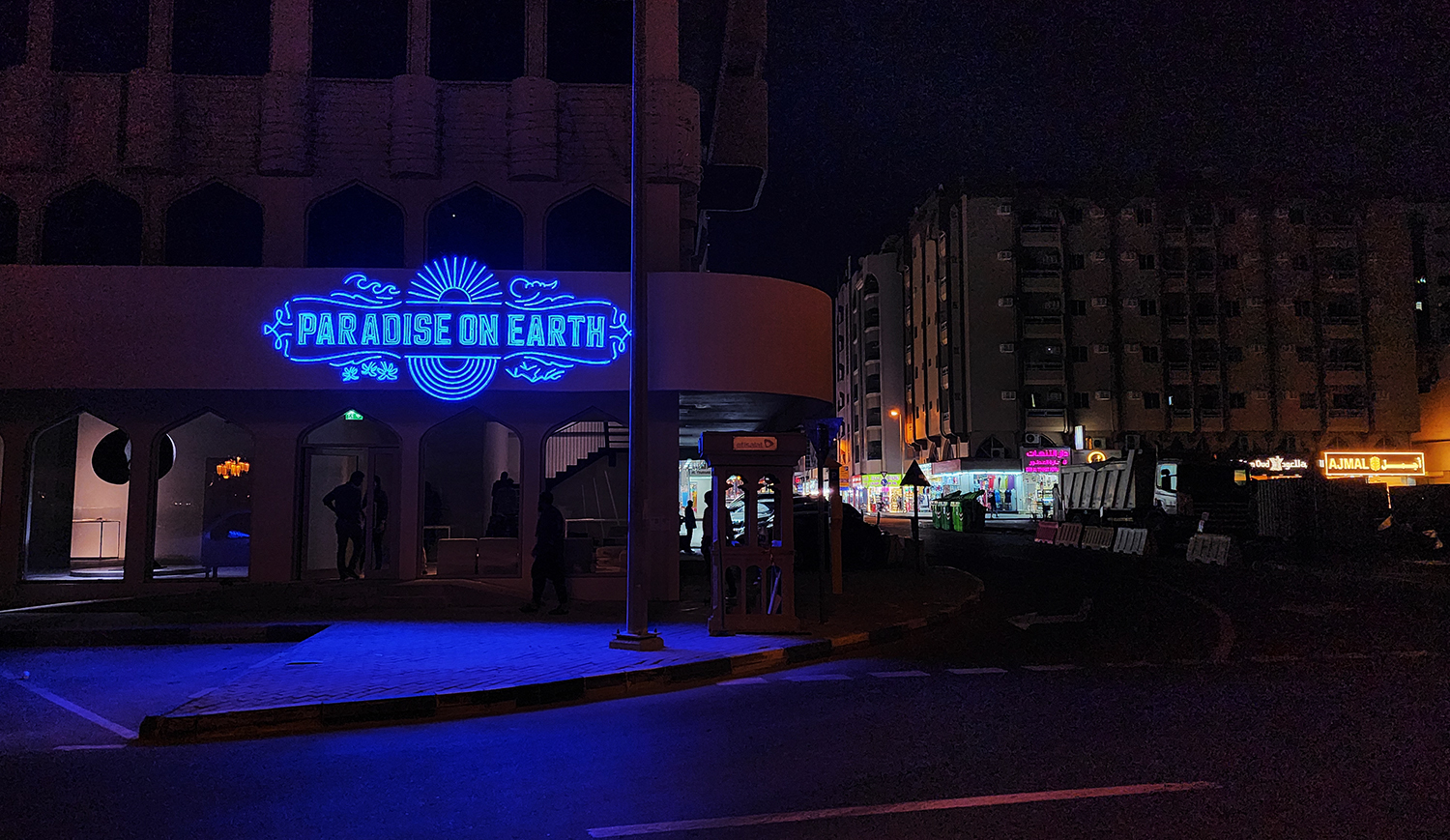
Paradise on Earth quotes a common phase that can found in the propagandist material in the Korea Peninsula. Divided into North and South in 1950 and in an armistice to the present day, each goverment promotes itself as the genuine 'paradise on Earth' to te other, as a means of phychological warfare.
In an interview I conducted, a North Korean defector thought of 'Paradise on Earth' when he first came to South Korea. Having endured fierce capitalism for 20 years of living in South Korea, such thoughts have disappeared and there is no paradise in Korea.
When I read the history and looked present state of Sharjah's banking street, It reminded me of Ryugyong Hotel in North Korea. The ephemeral propaganda buildings that were built excessively tall to show off to Western society, including South Korea, but were left empty due to power shortages....
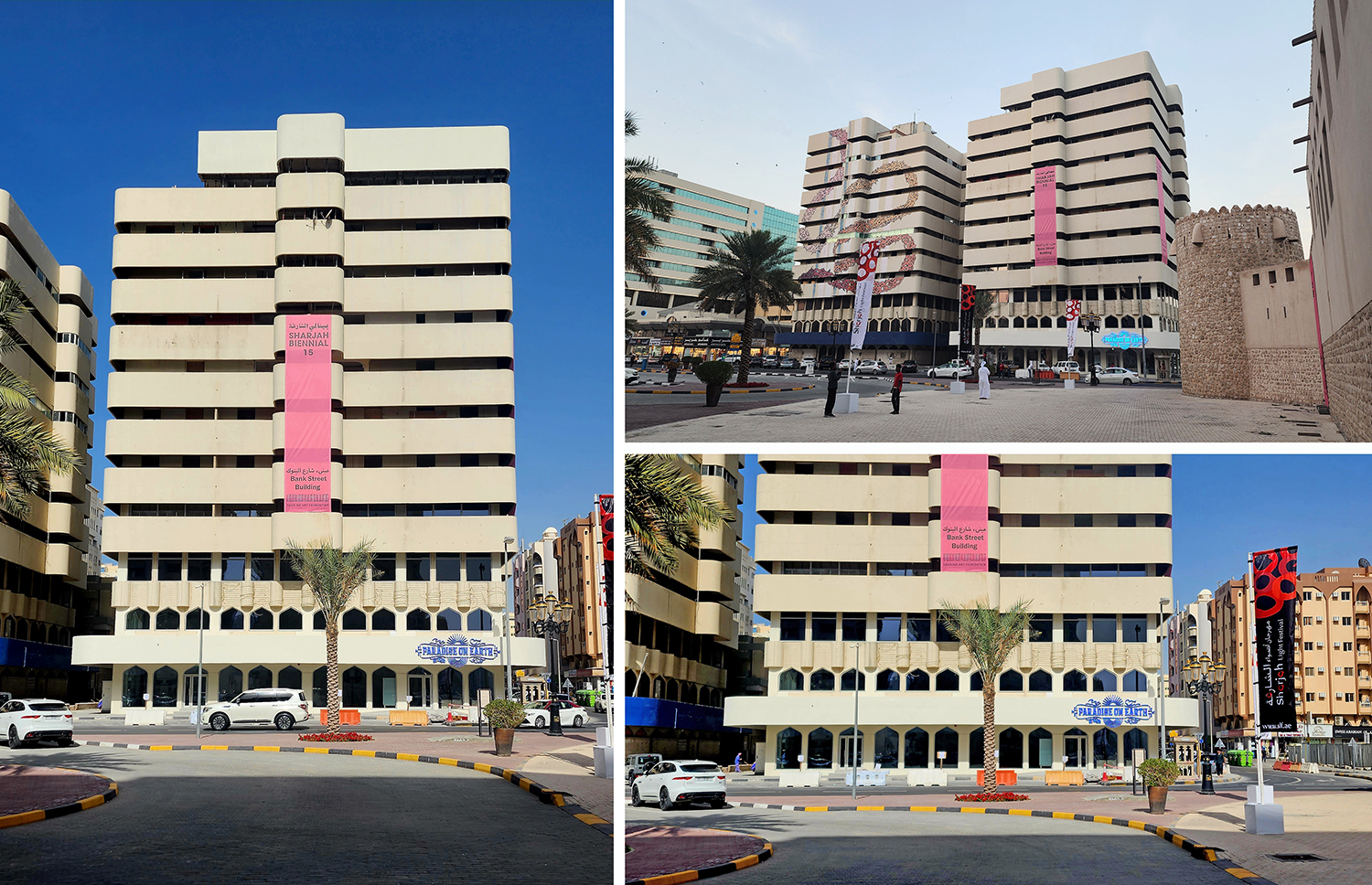
'What's Missing?'
South Korea shortly achieved economic success with rapid growth, the national happiness index, however, ranks extremely low in the aftermath, and we have had the highest suicide rate for a long time.
When I suffered severe burnout in my mid-30s after dedicating my life to success, I found this quote said by Albert Camus.
“If I sense a turning point has come in my life, it’s not because of what I have obtained but of something I have missed.”
As I immediately compared what I had earned and missed in my life, I realized that the essential things, such as people I adore, courage, self-respect, and imagination, that sustain my existence had disappeared along with my insignificant accomplishments. Later I asked a fundamental question to the audience in Korea who felt exhausted from an excessively competitive society,
‘What did you have to give up for the things you devotedly work for?’
Hence the start of a series of survey projects, Dialogue (2009~), for which I asked people about dreams they gave up, love, emotions, and what they hope. I felt the need because those things were disappearing in South Korean society.
North Korean defectors came to South Korea seeking economic stability, but the fierce competition and ruthless capitalism made them feel lonely and long for the family they left behind in North Korea. Likewise, capitalism has made South Koreans give up many valuable things as well.
I find money is comparable to desert sands in the way that it sparkles when there is light, is dazzling as a mirage but not unobtainable, and always makes people thirst. I wanted to address with this work the deep regret of North Korean defectors who mistook the life of losing precious things while chasing mirages as paradise.
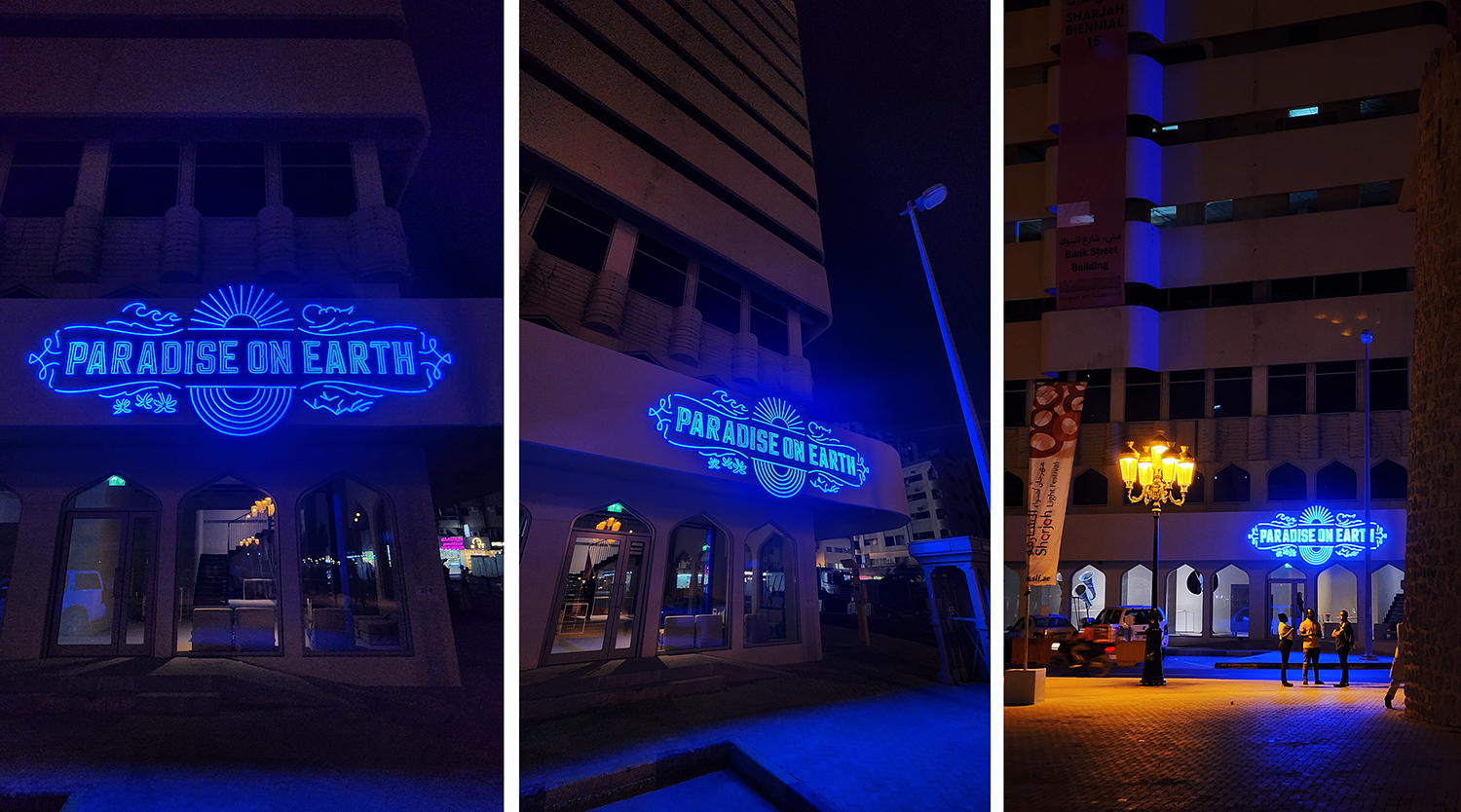
하늘 별세상(2017~)
A Man without a Country (2023 Sharjah) is an developed version of the work 'Paradise on Earth'(2017) exhibited by SeMA.
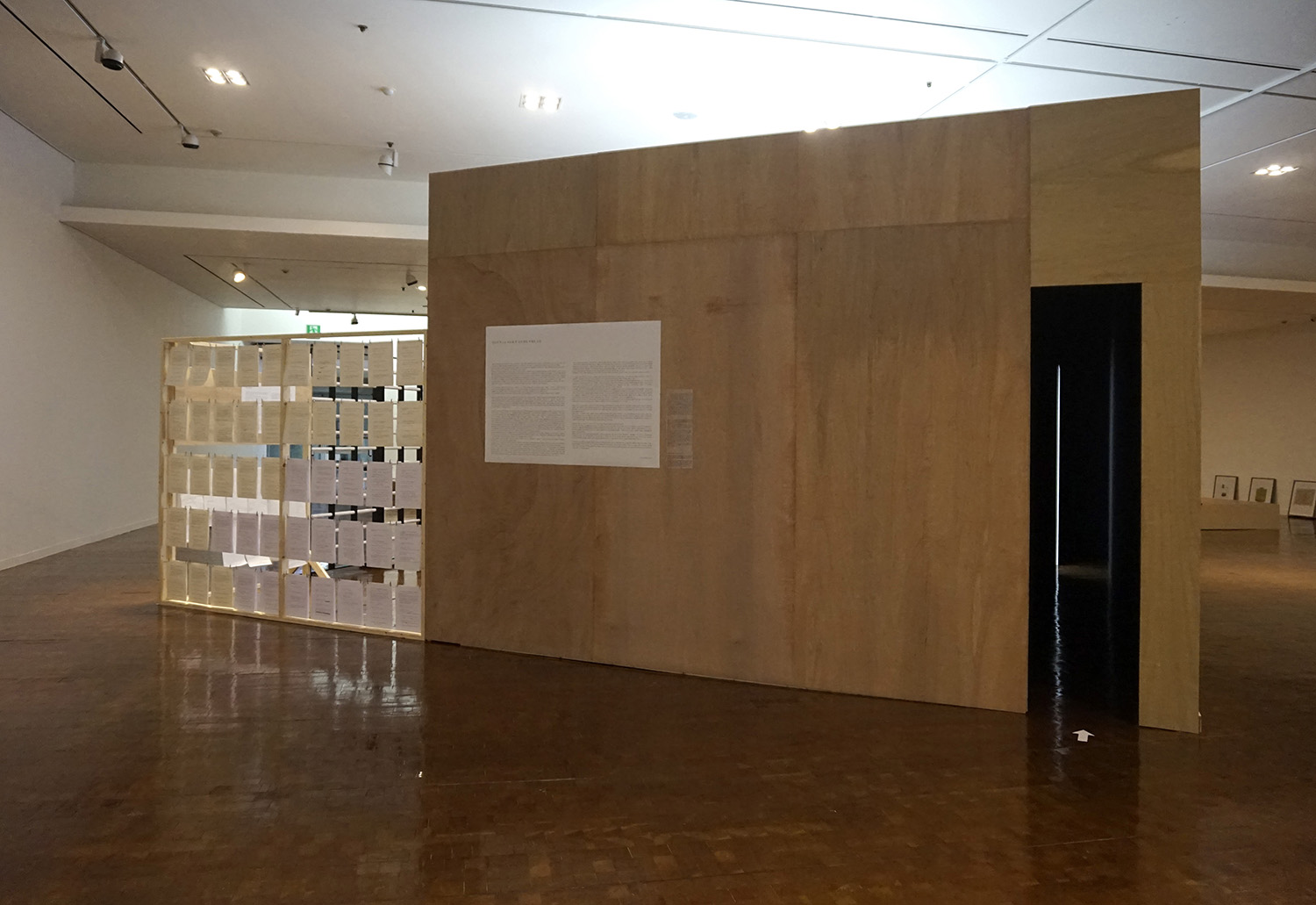
하늘 별 세상, 2017, 탈북민 설문, 스피커, 매쉬망(UV인쇄), 아카이브, 가변크기, 서울시립미술관 'The Border 155'
Paradise on Earth, North Korean defector survey, speaker, UV print on mesh, archive, Variable dimension, Seoul Museum of Art(SeMA)
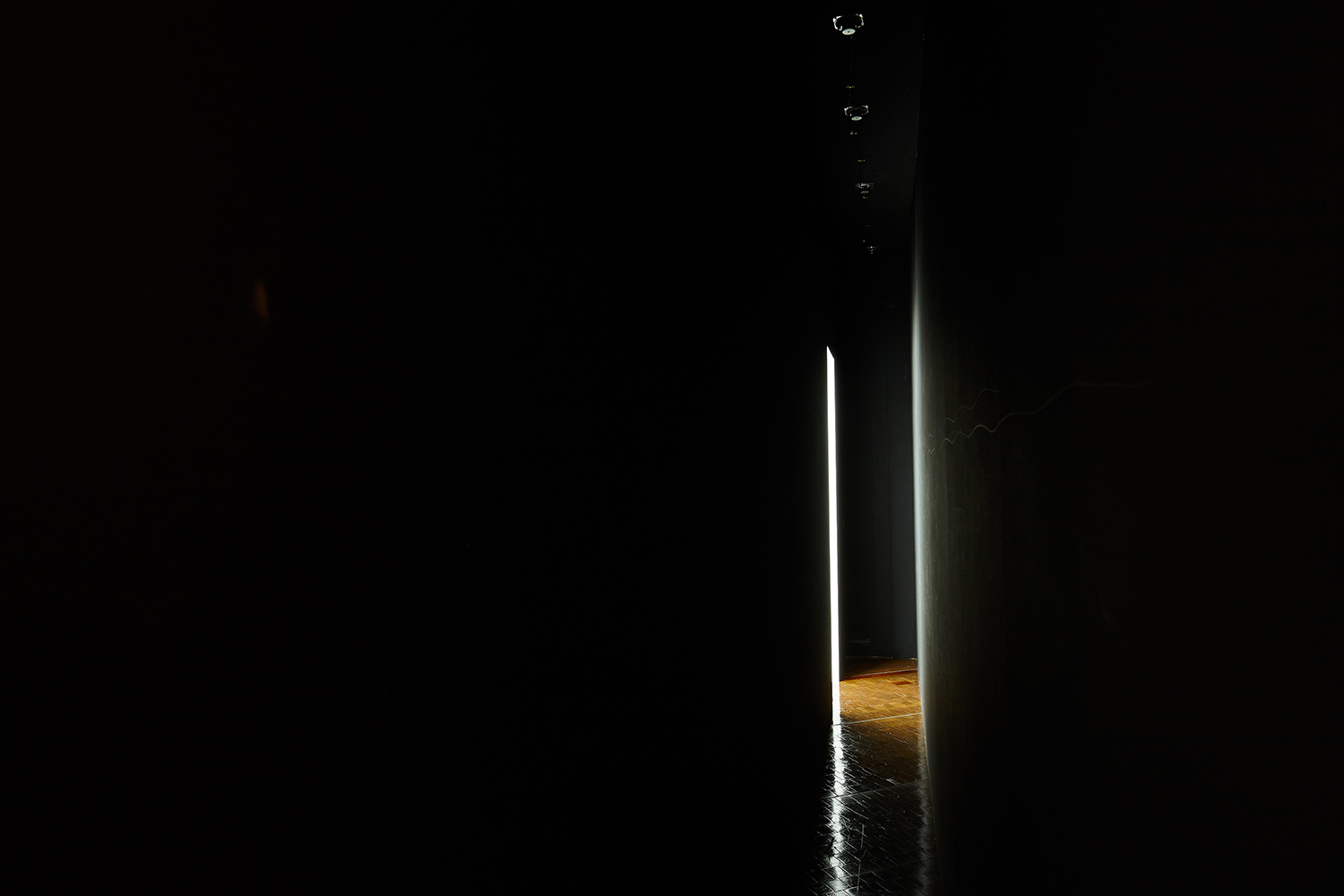
대북방송이 플레이되는 어두운 복도를 지나면 빛의 공간이 나타난다.
A space of light appears after passing through a dark corridor where broadcasting to North Korea is played.
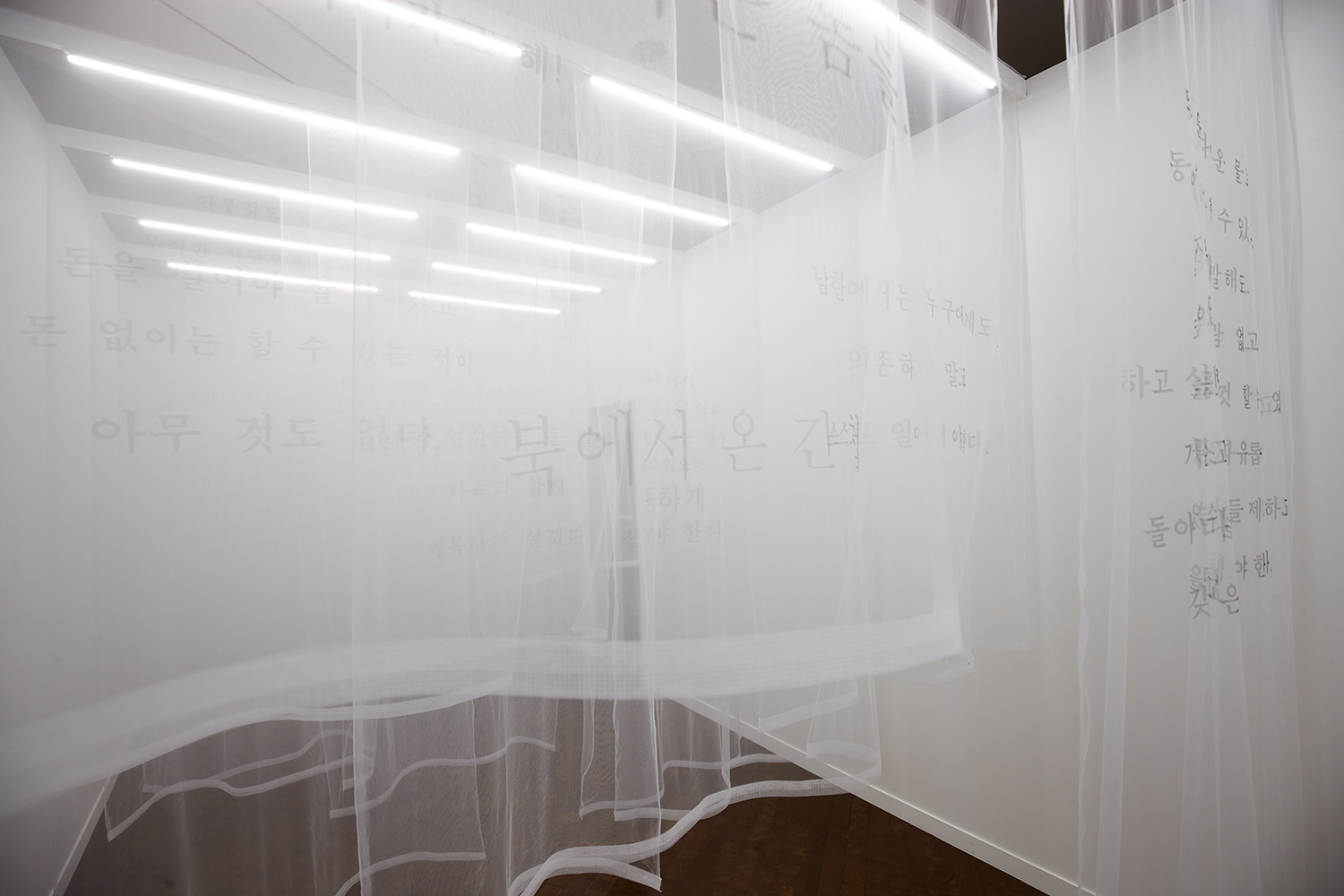
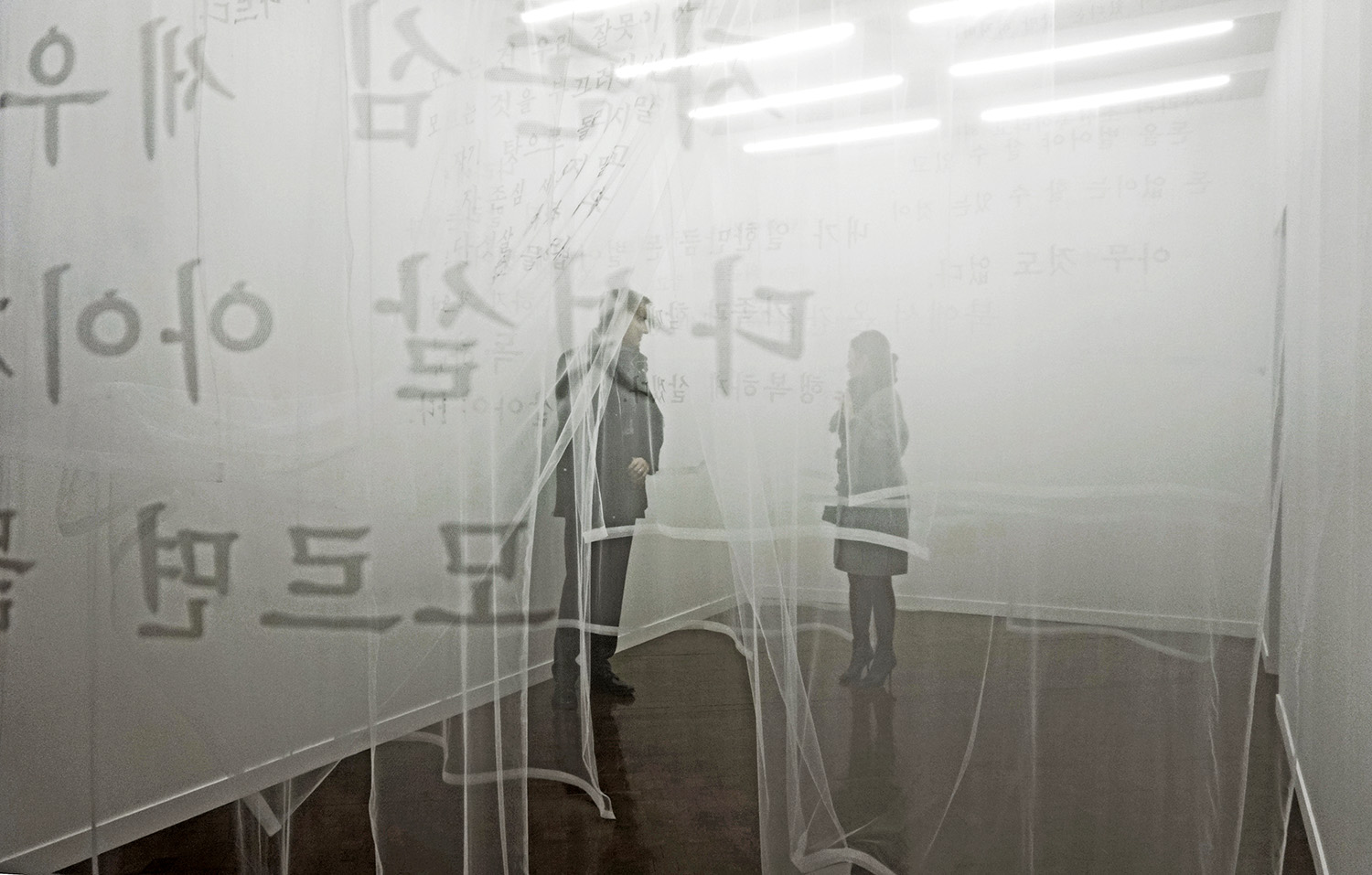
빛의 공간이라고 생각한 곳에는 탈북민을 향한 남한 사회의 편견과 혐오의 글이 가득하다. 투명한 망에 인쇄한 글들은 관객이 지나갈때 더 선명하게 나타난다. SB15(2023)에서는 이 글들을 사운드 모빌 설치로 변형했다.
The place that people once considered a space of light is, in reality, filled with articles expressing prejudice and hatred toward North Korean defectors in South Korean society. The words printed on the transparent net become more visible as the audience walks by. In SB15 (2023), these texts were transformed into a sound-based mobile installation.
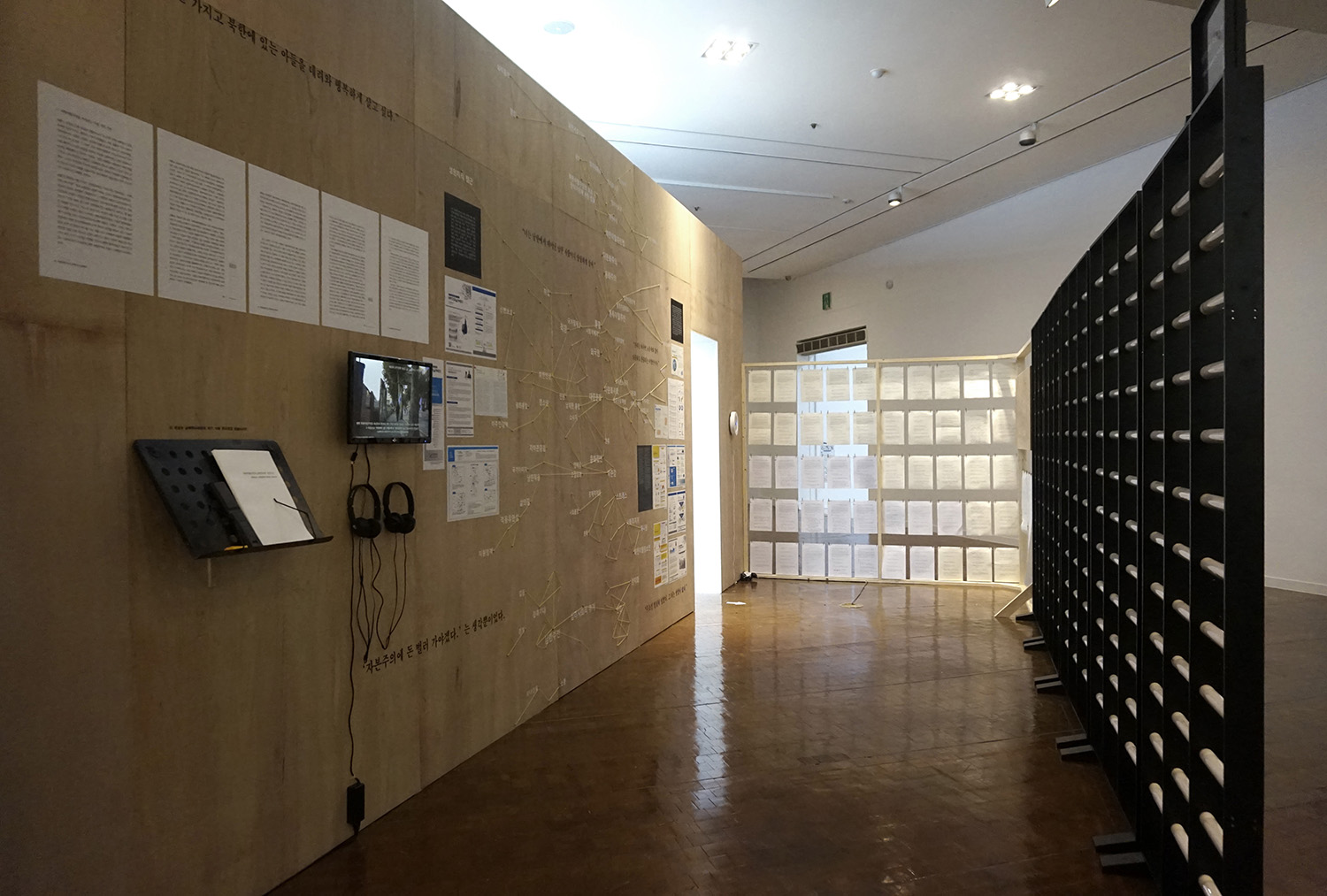
Archive: South of Vanishing Hope vs. North of Scant Freedom—Who Is Unhappier?
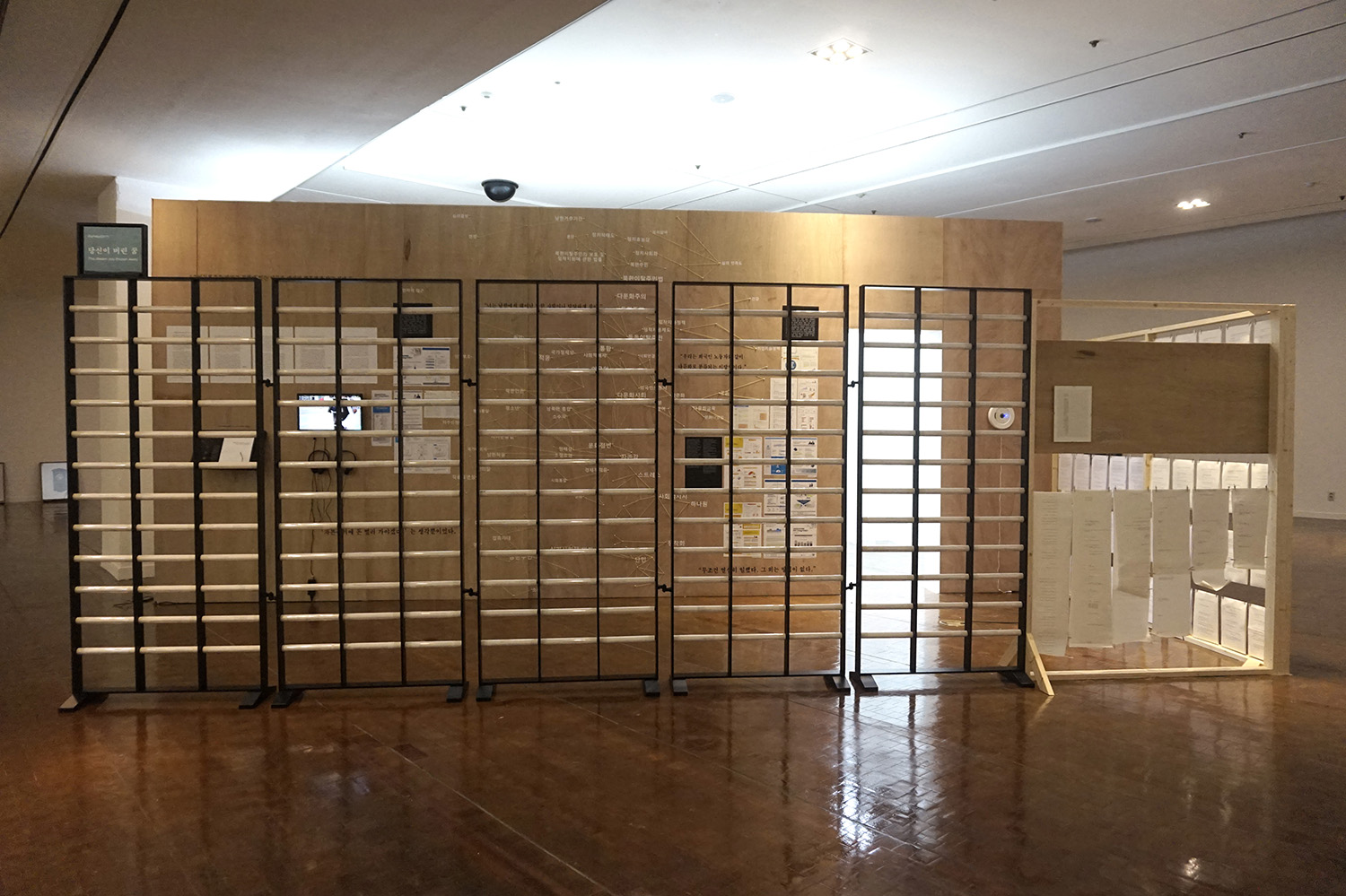
* Special Thanks: the Ministry of Unification, Hanawon, Hana Centers, and Seoul Museum of Art for cooperation in conducting this survey.







